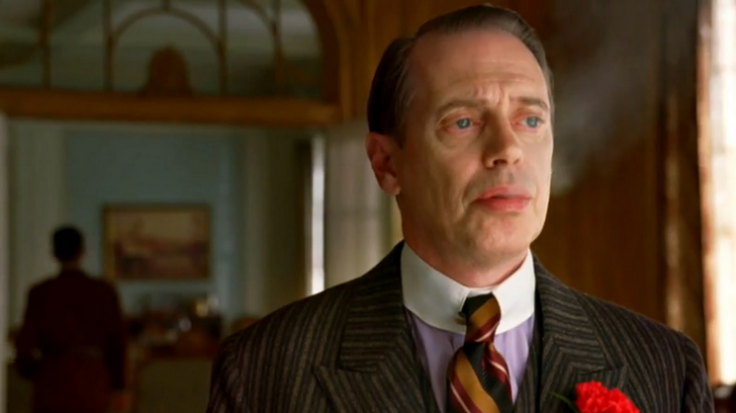'Boardwalk Empire' Series Finale: The Legacy Of An Underappreciated Classic

As slowly, but surely, casinos in Atlantic City close and news stories document the city’s decline, it is worth noting some eras don’t go out with a bang, they quietly fade out. “Boardwalk Empire,” which chronicled another era in the city, Prohibition, did just that. The acclaimed HBO drama came to a close Sunday (Oct. 26) after five seasons, going out with little hype or fanfare, but leaving behind an impressive legacy all the same.
The finale of “Boardwalk Empire” was viewed by only 2.3 million people, largely overshadowed Sunday night by AMC’s “Walking Dead” (13.8 million) and falling far short of the ratings garnered by HBO’s other now-finished drama this fall, “True Blood.” However, if “Boardwalk” didn’t have the ratings, it had the critics.
The show premiered in September 2010 with high praise and expectation. Produced by famed director Martin Scorsese (who directed the first episode) and created by veteran “Sopranos” writer Terence Winter, critics gushed about the premiere and first season of the gangster drama.
Brain Lowry of Variety wrote of the show’s first season: “This is, quite simply, television at its finest, occupying a sweet spot that -- for all the able competition -- still remains unique to HBO: An expensive, explicit, character-driven program, tackling material no broadcast network or movie studio would dare touch. ... For those wondering when the channel would deliver another franchise to definitively put it on top of the world, Ma, the wait is over: Go directly to ‘Boardwalk.’”
During the show’s five-season run, “Boardwalk Empire” never lost the critics. On Metacritic, a site that aggregates critical opinion, the show rates highly for every season and rightly so.
“Boardwalk Empire” will go down as one of the most beautiful shows ever made. With it’s elaborate production design bringing a Prohibition-era Atlantic City to life, intricately gorgeous costumes and elegantly stylized violence the show often looked more like an Oscar-nominated film by its producer (Scorsese) than a cable drama. The series combined the detailed period splendor of “Mad Men” with the poetic violence of “The Sopranos” in a way that both moved and thrilled fans every week.
Of course, the brilliant performances throughout went a long way toward cementing the show’s legacy as well. “Boardwalk” took an ensemble of acclaimed character actors (Steve Buschemi, Michael Shannon, Kelly Macdonald) and gave them the spotlight, creating one of the most interesting bands of anti-heroes television has seen. The show also was not afraid to lose any of those characters, killing the closest thing it had to a hero, fan favorite character Jimmy Darmody (Michael Pitt), in Season 2, the same year (2011) “Game of Thrones” was killing Ned Stark (Sean Bean) in its premiere season.
If “Boardwalk Empire” failed in any area, it was capturing the watercooler talking, binge watching public with the kind of excitement usually earned by great television shows. Though often nominated, the show never won an Emmy for Outstanding Drama or Outstanding Actor for Buschemi (though Season 1 won the Golden Globe for both categories), losing out to “Mad Men” and “Breaking Bad.” The show also never managed to drum up the ratings surge of “Breaking Bad” or “The Sopranos,” and perhaps suffered from living in the latter’s enormous shadow as the next-best gangster drama on HBO.
In fact, “Boardwalk Empire” might go down as the greatest television show to never be the best show on television. While creating a moody world of complex characters, it seemed always to be playing second fiddle to “Mad Men” in the praise reaped by its superb writing while it’s exciting crime saga was constantly upstaged (in the ratings at least) by the faster paced, more pop culture savvy “Breaking Bad.” The slow burn of “Boardwalk Empire” never achieved a moment of singular praise.
That should not, however, detract from the five seasons of fantastic television that made up “Boardwalk Empire.” The show’s morality tales of episodes are so densely packed, they beg to be rewatched and appreciated for years to come. Like the city in which it is set, “Boardwalk Empire” will just have to wait for another era to be appreciated.
What is the legacy of “Breaking Bad?” Tweet your thoughts to @Ja9GarofaloTV.
© Copyright IBTimes 2024. All rights reserved.












